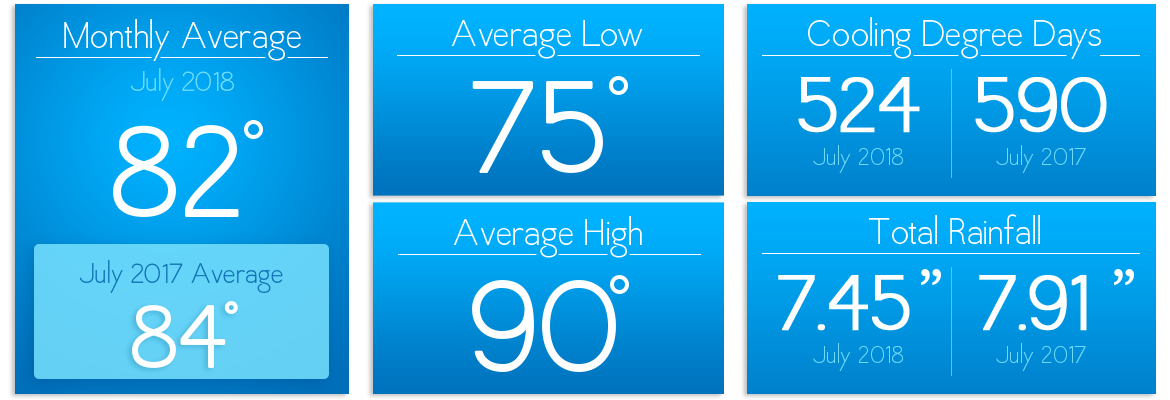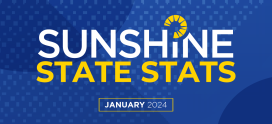
Sunshine State Stats, July 2018
July 2018 was pretty darn hot with nearly daily rain showers. The average high was 90°. The average temperature was 82°, while July of 2017 had an average temperature of 84°. The average low was 75°, compared with an average low of 76° last July. Rainfall for July of 2018 was 7.45 inches compared to last July at 7.91 inches.

There were 524 cooling degree days and 0 heating degree days for July 2018, while last year there were 590 cooling degree days with 0 heating degree days. The Degree Days are based on how much warmer or cooler the average temperature at a particular location is than 65°F. In other words, if the average temperature is 60° degrees outside on a particular day, there are 5 Heating Degree Days for that day in that location.
August 2018 is forecast to be somewhat the same as last year with average high temperatures in the 90s. Rainfall is forecast to be heavier than normal compared to 2017. The continuation of afternoon showers could give your HVAC units a much-needed break.
Hurricane Season Update: Chances that the global climate pattern El Niño will develop this fall were increased in the most recent forecast, boosting confidence in revised predictions for a below-normal hurricane season. The federal Climate Prediction Center’s July El Niño forecast is giving it a 65 percent chance of appearing in the fall, and about a 70 percent chance of a winter formation.
For Florida, the periodic warming of the equatorial Pacific Ocean can mean a less active hurricane season with fewer of the powerhouse Cat 5 tropical cyclones known to build during the peak months of August through October.
If you want to check historical usage, log into SmartHub to view past bills and charts. If your usage is high, SECO offers several energy-efficiency tools to help you identify energy wasters. Take the Home Energy Assessment to receive a detailed email tailored to your home’s features and lifestyle. The energy-saving advice will provide low-cost ways to decrease your usage – and your electric bill.
To easily calculate how much energy your appliances, lighting, electronic devices, and other energy-using items in your home consume, use the Energy Estimator. If you want a member of our Energy Services team to come to your home to perform a free energy audit, contact us today to book an appointment.




